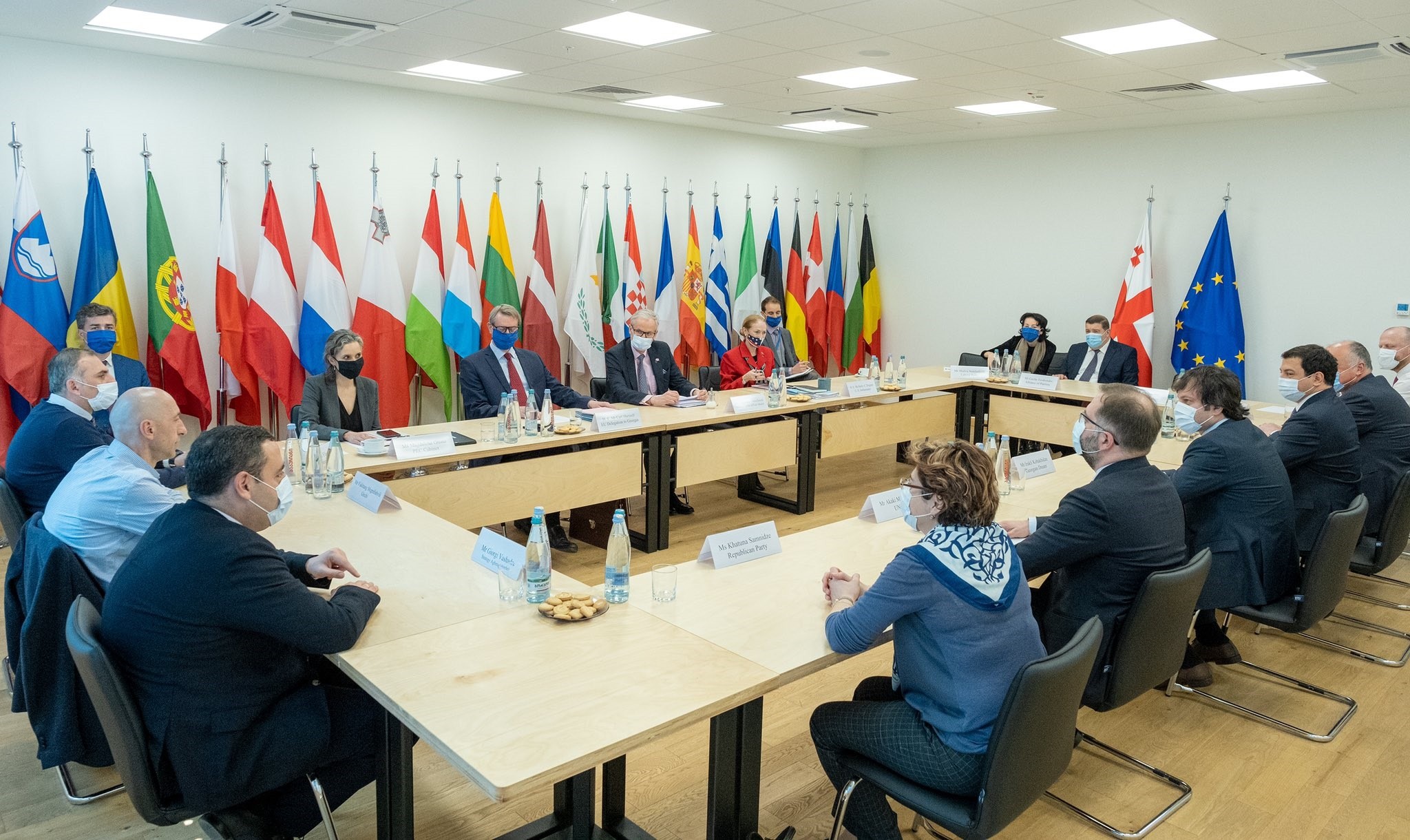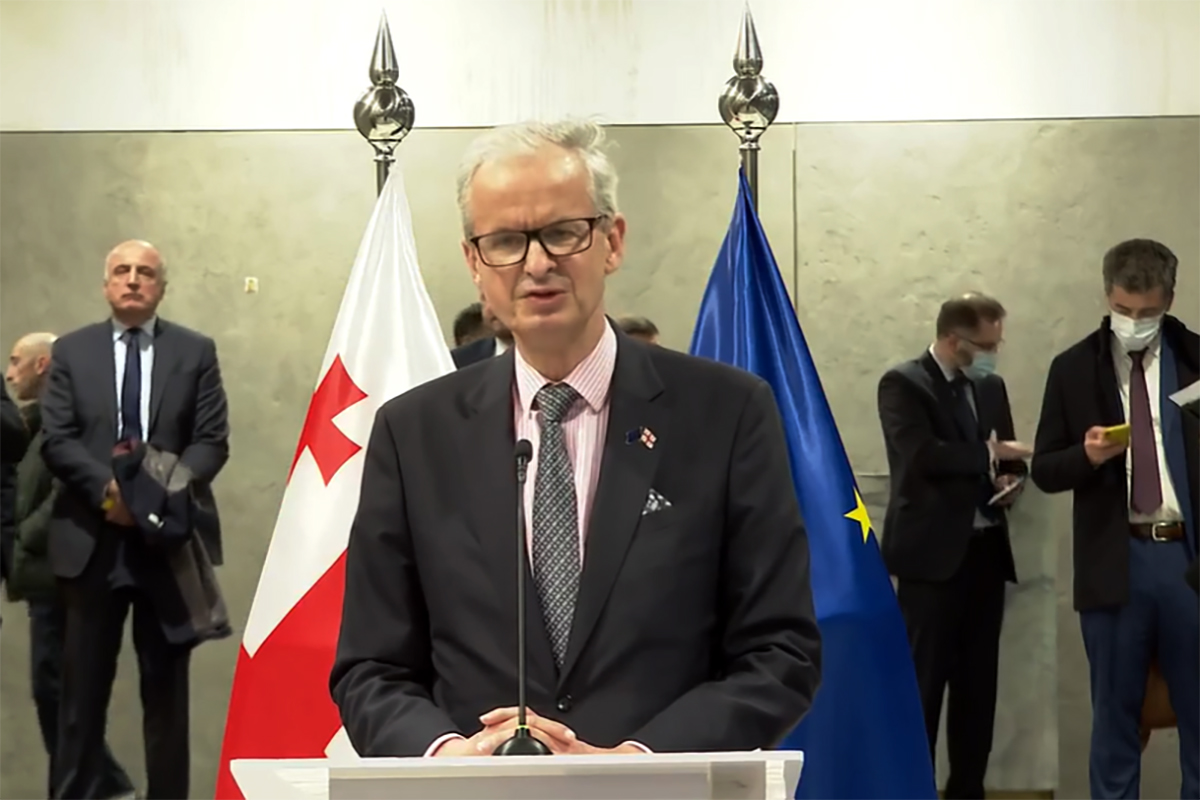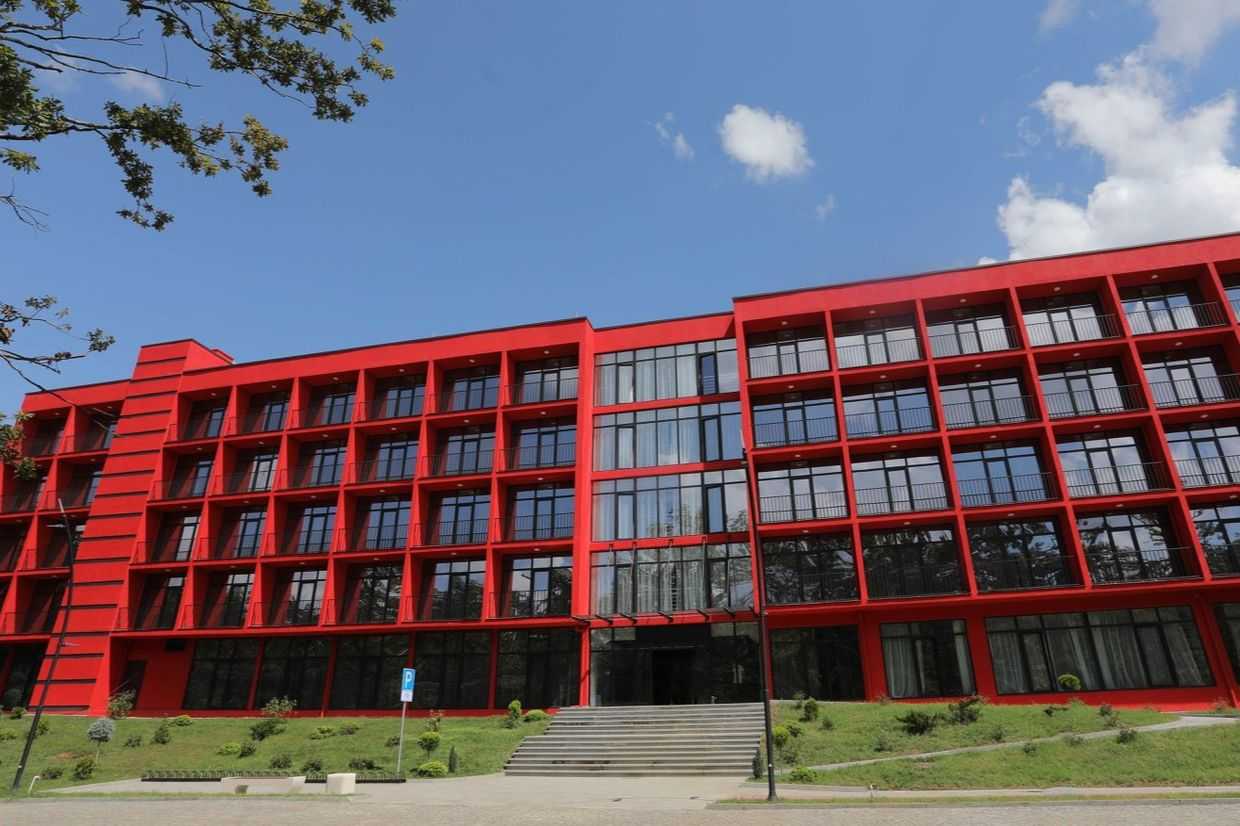
EU efforts to move Georgia out of political deadlock have failed, sharing the fate of the previous talks in November and December.
After over 9 hours of negotiations between the ruling Georgian Dream party and opposition groups in Tbilisi going into Thursday night, Christian Danielsson, the personal envoy of European Council President Charles Michel, announced that they had failed to reach an agreement.
‘Ending the political crisis would mean that Georgia’s leaders can focus their full attention on COVID and its social-economic consequences, advancing on the EU agenda, and defending Georgia’s security interests in the region’, Danielsson said after wrapping up the talks on Thursday. ‘Those are the real challenges that this country is facing.’

While the parties involved in the negotiations were expected to refrain from sharing details of the talks publicly, both Georgian Dream and their opposition made clear that the key issues from Charles Michel’s six-point plan that they could not agree on were early elections and the release of ‘political prisoners’.
Following 31 October’s parliamentary elections, almost all opposition political groups refused to endorse their parliamentary mandates. This was followed by waves of street protests and the arrest of Nika Melia, the chair of the largest opposition group, the United National Movement.
[Read more on OC Media: Melia arrested as police raid UNM offices in Tbilisi]
Together with Melia, government critics also frequently name opposition supporter Giorgi Rurua among the political prisoners in the country. Rurua was arrested in November 2019 for illegal arms possession but unlike others, has not been pardoned by Georgian President Salome Zurabishvili.
Christian Danielsson noted on 19 March that ‘some important progress’ was made ‘on several aspects’ during the negotiations.
Other issues from the agenda, according to opposition leaders, included electoral and judicial reforms.
A previous series of post-election talks mediated by US Ambassador to Georgia Kelly Degnan and European Ambassadors in Tbilisi collapsed after four rounds of talks in early December.
Since then, western officials have grown increasingly impatient with the ongoing crisis in the country.
[Read more: EU parliamentarians warn of ‘crisis in democracy’ in Georgia]
‘It’s a madhouse!’
Georgian Dream, led in the negotiations by party Chair Irakli Kobakhidze, insisted there was no ground to call early elections, citing the recent EU-Georgia Association Council statement that described October’s elections as ‘competitive’. The statement said that despite ‘shortcomings’ identified by international observers, ‘overall, fundamental freedoms were respected’.
Kobakhidze accused opposition groups of fielding ‘ultimatums’ during the negotiations that, according to him, contradicted ‘the rule of law’ and ‘statehood’.
Kobakhidze did not rule out restarting the negotiations in some form in the future.
Following Christian Danielsson’s statement, representatives from opposition groups Strategy Aghmashenebeli, Lelo, European Georgia, the UNM, the Republican Party, the Alliance of Patriots, and Girchi — More Freedom condemned Georgian Dream accusing them of wrecking the talks.
Vakhtang Megrelishvili from Girchi — New Political Centre, from which Girchi — More Freedom led by Zurab Japaridze split after the elections, struck a different cord.
‘I entirely don’t understand what is happening here… they hate each other so much that they can’t talk… It’s a madhouse’, Megrelishvili complained, accusing both sides of ‘disrespecting’ issues that he said were important for him.
Aleko Elisashvili, chair of the only opposition group, Citizens, who endorsed their parliamentary mandates, also complained that ‘neither side cared what would happen in this country after that’.
‘They prefer the country to be constantly unstable’.
The leader of the Labour Party, Shalva Natelashvili, who stormed out of the negotiations on Thursday, claimed that early elections had been taken off the agenda by Wednesday. According to him, the working document offered to the opposition would have given them only chairmanship of five parliamentary committees.









